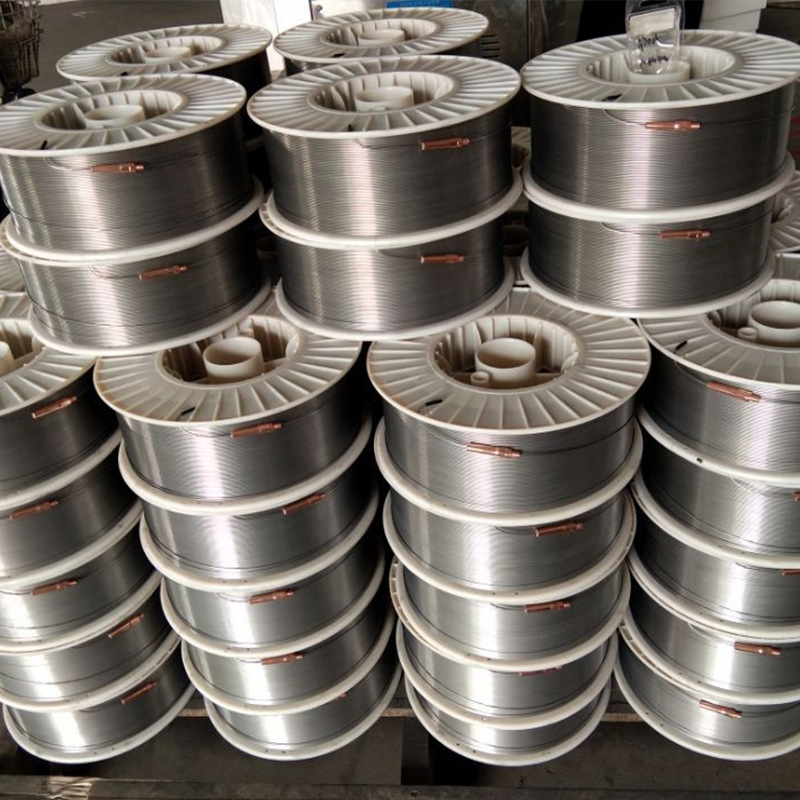Welcome to Jiangsu DZX Factory.
Email:dlx@dlx-alloy.com Mobile/Whatsapp:+86 199 0611 9641
Professional manufacturer of welding wires and spraying wires,over 22 years.
Welcome to Jiangsu DZX Factory.
Email:dlx@dlx-alloy.com Mobile/Whatsapp:+86 199 0611 9641
Professional manufacturer of welding wires and spraying wires,over 22 years.
Contact:Jason
Whatsapp:+8619906119641
Email:dlx@dlx-alloy.com
Add:NO.32 West Taihu Road, Xinbei District, Changzhou, Jiangsu,China
Release time:2025-07-10 click here:108
These materials are at the core of our mission to deliver durable, high-performance coatings that keep critical components safe from the elements—whether it’s salty ocean spray, blistering heat, or harsh chemicals. Let’s break down why these wires are stealing the spotlight, how they’re being used, and where the industry is headed.

Our Thermal Spray Wire s, made from nickel and aluminum, are engineered to tackle corrosion head-on. Nickel is a heavyweight in high-stakes environments—think aerospace turbine blades or automotive exhaust systems. Its ability to withstand extreme temperatures and chemical exposure makes it a go-to for parts that need to last. Aluminum, on the other hand, is a lightweight, budget-friendly option that shines in marine and infrastructure applications. It forms a protective oxide layer that laughs in the face of rust, making it perfect for coating ship hulls or bridge structures. Together, these materials let us offer versatile solutions that balance performance and cost.
Nickel wires are denser and pricier but deliver unmatched durability in aggressive settings. Aluminum wires, with their lower melting point and high thermal conductivity, are easier to apply and ideal for large-scale projects where cost matters. Both can be customized—whether it’s tweaking the alloy mix or adjusting coating thickness—to meet the exact needs of our clients. This flexibility is why our wires are trusted across industries.
The thermal spray wire market is buzzing, and we’re seeing some clear trends shaping its future. First, sustainability is a big deal. Clients are pushing for eco-friendly coatings that meet strict environmental regulations, and we’re responding with greener processes and recyclable materials. Automation is another game-changer—robotic spray systems are making applications faster, more precise, and less wasteful. We’re also seeing a surge in demand from renewable energy sectors, like wind and solar, where our wires protect components from harsh outdoor conditions.
The global market for thermal spray coatings is expected to keep climbing, with a projected growth rate of around 6% annually through 2030, driven by aerospace, automotive, and infrastructure needs. Infrastructure, especially, is a hot spot—think bridges, pipelines, and offshore platforms that need long-lasting corrosion protection. Meanwhile, advancements in spray technology, like high-velocity oxy-fuel (HVOF) systems, are letting us create denser, more durable coatings. We’re investing heavily in R&D to stay ahead, experimenting
Parameter | Nickel | Aluminum |
|---|---|---|
Melting Point (°C) | 1,455 | 660 |
Corrosion Resistance | Excellent (chemical and marine) | Very Good (marine and atmospheric) |
Wear Resistance | High | Moderate |
Density (g/cm³) | 8.9 | 2.7 |
Typical Applications | Turbine blades, exhaust systems | Ship hulls, bridge structures |
Cost-Effectiveness | Moderate (higher material cost) | High (lower material cost) |
Thermal Conductivity | Moderate | High |
Coating Thickness Range | 50–500 µm | 100–600 µm |
1. What makes nickel and aluminum ideal for thermal spray wires?
Nickel offers exceptional corrosion resistance and high-temperature stability, while aluminum provides lightweight, cost-effective anti-corrosion coatings.
2. Which industries rely on nickel and aluminum thermal spray wires?
Aerospace, automotive, marine, and power generation industries use these wires to protect critical components from corrosion and wear.
3. How do these wires enhance corrosion resistance?
They form durable, protective coatings that shield surfaces from moisture, chemicals, and harsh environments, significantly extending component life.
4. What trends are shaping the use of these wires?
We’re seeing growth in eco-friendly coatings, automated application systems, and increased demand in renewable energy and infrastructure projects.
5. Can nickel and aluminum thermal spray wires be customized?
Absolutely, we tailor wire compositions, diameters, and coating thicknesses to meet specific application needs across various industries.